Need to have a vision to master core technologies
At the scientific conference "Ensuring security and autonomy in Vietnam's chip manufacturing technology in the process of national digital transformation" held on August 22 in Hanoi, Mr. Tran Kim Chung - Chairman of CT Group emphasized: In fact, today technology is becoming hotter than ever, the world is facing a new threat in the field of security, which is a form of malware that operates at the CPU level, meaning it has the ability to hide deep in hardware and overcome most security solutions.
According to the Chairman of CT Group, today, no independence is truly independent if it is still dependent on technology. Vietnam is in the process of strong digital transformation taking place at an unprecedented speed. However, this very fast and strong digital transformation is also opening up new problems.
"We have now completed the first axis of digital transformation, which is citizens, and started the second axis, which is organizations, and the third axis, which is digital transformation according to the multi-layered, marginal space ground. It includes many layers, from underground, above ground, across the ground, all structures from trees to hills, rivers, cities... So in the third axis, the amount of data is much larger and the number of hardware devices involved is even larger. However, we are currently using entirely foreign chips.
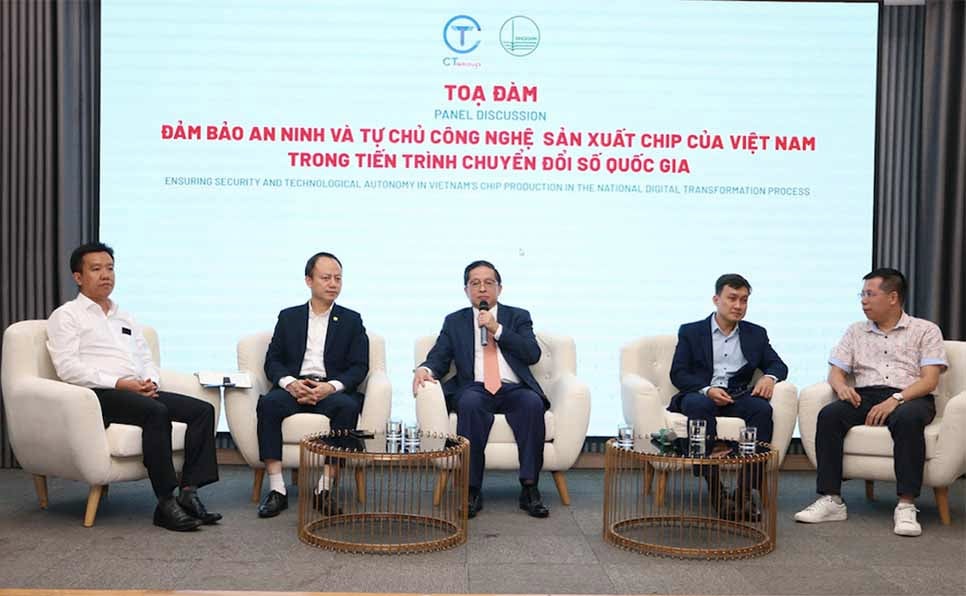
This means we can be interrupted at any time, we can lose national data. We also cannot be proactive in emergency situations. So we need to have a higher vision of mastering core technologies from design, production to commercialization of semiconductor chips," Mr. Chung emphasized.
Besides, it is necessary to create Made by Vietnam products to serve both people's lives, national defense and security and to compete equally in the world market.
And above all, it is necessary to build an independent, self-reliant and strong semiconductor industry, laying the foundation for high technology, laying the foundation for national autonomy. And only then can Vietnam truly become the new semiconductor center of Southeast Asia, serving both the country and supplying the world.
Associate Professor, Dr. Thai Truyen Dai Chan, member of the CTGroup Scientific Council, believes that the current competition for control of semiconductor chips among the superpowers is not only a commercial issue but also a geopolitical war, because whoever controls semiconductors will control most of the technological power in the future.
Therefore, if a country cannot master integrated circuits, the risks will be extremely high. First of all, in terms of economy, just one fluctuation in the global supply chain, such as an epidemic or trade tensions, can paralyze a series of manufacturing industries. This directly affects GDP, employment and social stability. In terms of security and defense, all modern military systems, from radars, satellites, UAVs, to high-precision weapons, depend on semiconductor components. If the supply is cut off, the defense capability will be reduced. More dangerously, imported circuits can be installed with "security holes" (backdoors), creating the risk of illegal intrusion, threatening national sovereignty. In addition, dependence also hinders the process of technological innovation.
Sharing the same view, Colonel, Dr. Le Hai Trieu, Director of the Institute of Professional Electronic Engineering under the Department of Security Industry (Ministry of Public Security) emphasized that currently, the design of microchips is done very well by some domestic enterprises, but production is still done abroad and this is related to security risks and costs.
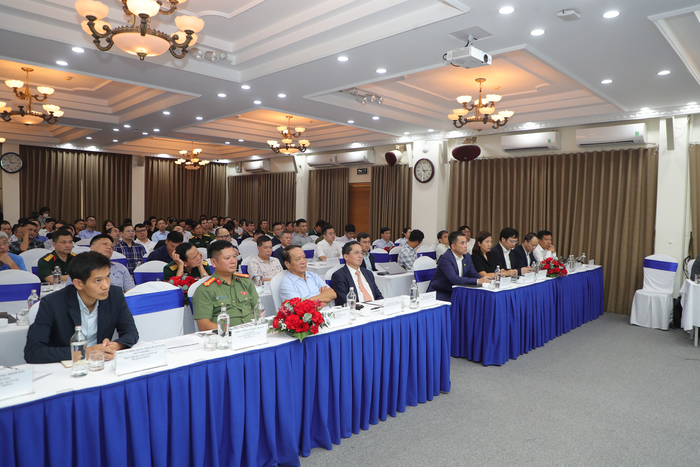
Currently, chips used for Vietnamese ID cards and passports are widely used in the world (the market share of EMV, eID, e-Passport chips accounts for 95% of the world) and will continue to be used in the future. Therefore, domestic semiconductor enterprises should focus on producing these products.
It is necessary to decide which chip lines must be developed domestically.
At the workshop, Mr. Chung proposed that the Ministry of Public Security and the Ministry of National Defense need to clearly decide which chip lines must be developed domestically. CT Group is ready to work with Hanoi National University to research, develop and respond.
It takes about 2 years to design a normal chip. Then there is photolithography, if there are units that accept photolithography like TSMC, it will take 3-4 months. Then there is the packaging and testing process. In general, it will take more than 2 years to have a chip. So if we make all the necessary chips at the same time from now, it will take until 2027 to have them while the digital transformation process is taking place very urgently.
We also propose that the National University and CT Group can cooperate with units of the Ministry of Public Security and the Ministry of National Defense to conduct joint research. To develop standard products on the basis of our own developed chips. We can develop standard products. In CT Group, we do not only make chips, we can make circuit boards, sensors and drones in many different lines," said the Chairman of CT Group.
CT Group also proposed that Hanoi National University and CT Group cooperate with the Ministry of Public Security and the Ministry of National Defense to create a chip testing laboratory, and also create a common chip for SIM chips of unmanned aircraft for inspection.
Speaking at the workshop, Prof. Dr. Pham Bao Son - Vice President of Hanoi National University expressed his belief that Hanoi National University and CT Group will together create new values, contributing to improving national technological capacity, ensuring security and autonomy in semiconductor chip technology, and successfully implementing the goal of national digital transformation.
Source: https://doanhnghiepvn.vn/cong-nghe/rui-ro-khi-phu-thuoc-vao-chip-cua-nuoc-ngoai/20250822053535897








![[Photo] General Secretary To Lam attends the 80th anniversary of Vietnam's diplomacy](https://vphoto.vietnam.vn/thumb/1200x675/vietnam/resource/IMAGE/2025/8/25/3dc715efdbf74937b6fe8072bac5cb30)
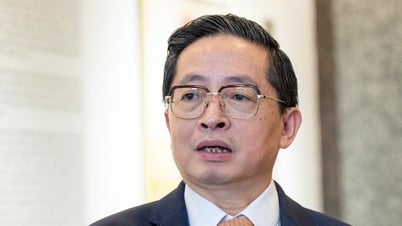

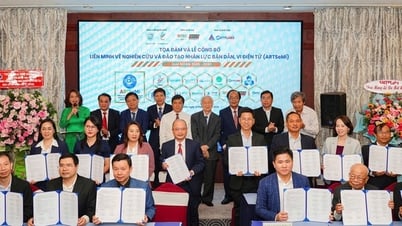

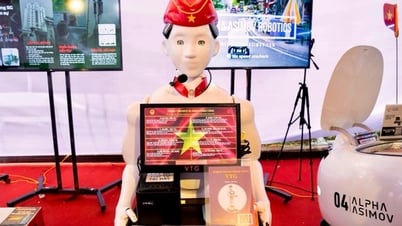

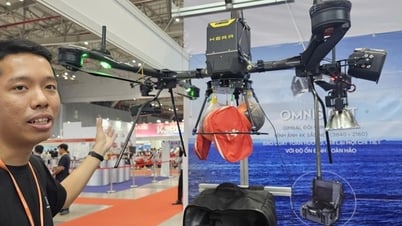




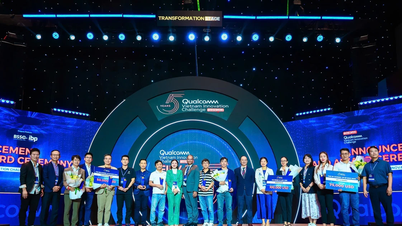












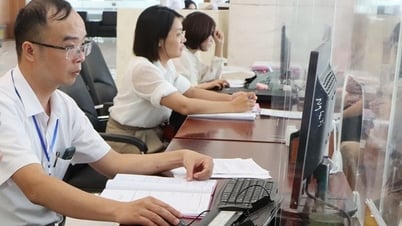
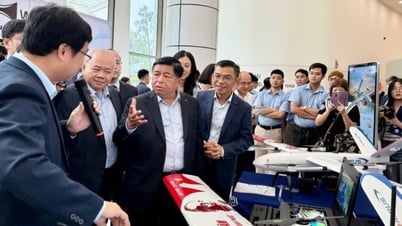




















































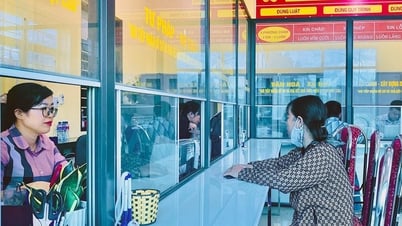





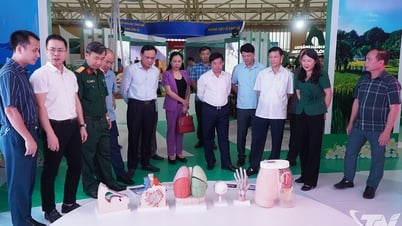


















Comment (0)